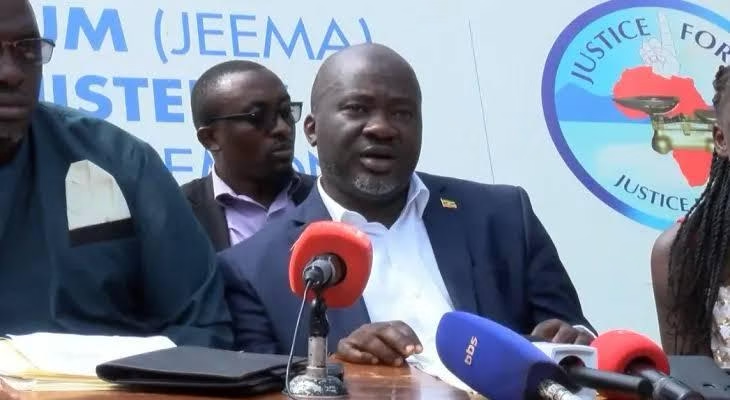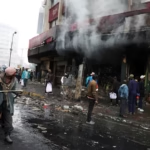The Justice Forum (JEEMA) is facing a serious internal crisis following the resignation of more than 50 senior leaders from across 53 districts in Uganda. The leaders cited undemocratic tendencies, power struggles, and the erosion of internal transparency as their reasons for walking away from the party.
Among those who resigned are notable figures such as former Foreign Affairs Secretary Abdulnoor Kyamundu Ssentongo, Youth League Chairperson Haruna Musanje, and former Youth Secretary Derick Namukajjo.
The resignations follow months of tension and growing dissatisfaction with the party’s top leadership, especially decisions made by the National Executive Committee (NEC) under JEEMA President Asuman Basalirwa.
“We did not resign because we were tired of serving the party. We resigned because the party stopped serving its members,” said Kyamundu during a press briefing. “There’s no more internal democracy. The NEC extended its term without consulting the grassroots. We raised our voices—and were ignored.”
The resigning leaders accuse the party’s top officials of making unilateral decisions, including extending NEC leadership terms until 2028, and delaying long-promised constitutional reforms.
While the JEEMA leadership insists the decisions were made in the party’s best interest, critics say the leadership has become disconnected from its base.
“We built this party at the grassroots. But now, a few individuals at the top want to own it,” said one youth leader from eastern Uganda who also resigned.
The mass resignation has exposed deep divisions within the party that could weaken JEEMA’s position ahead of the 2026 general elections.
Political analysts warn that losing leadership from 53 districts is a major blow to a party that has long prided itself on integrity, justice, and community connection.
“This is more than an internal disagreement,” said political analyst Sarah Adoch. “It’s a vote of no confidence from JEEMA’s own backbone—its local leaders. Rebuilding trust will not be easy.”
The party leadership has yet to issue a full public response to the resignations. However, sources indicate internal meetings are ongoing to assess the damage and plan a way forward.
With elections less than a year away, JEEMA must now fight not just for votes—but for its very survival. Whether the party can recover from this mass exit, or whether it will fragment further, remains to be seen.



